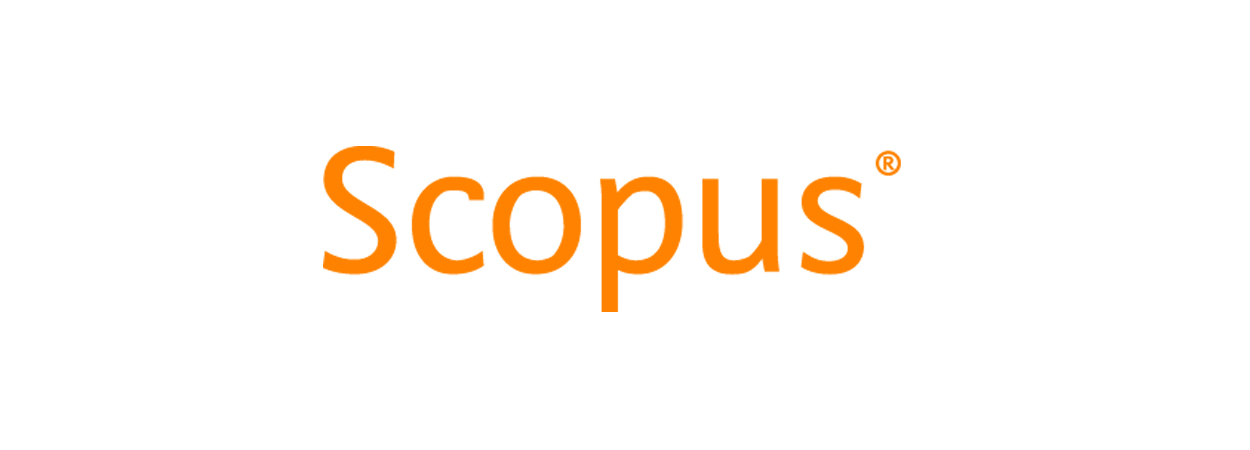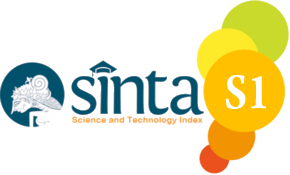FA’ĀLIYAH WASĪLAH AL-KALIMĀT AL-MUTAQĀṬI‘AH LI SAIṬARAH AT-ṬULLĀB ‘ALA FAHM AN-NAṢ AL-‘ARABI FĪ SMP IT MADRASAHATUL QUR’AN ACEH BESAR
Abstract
SMP IT Madrasatul Quran is one of the Islamic boarding schools that offer Arabic as a second language programs in the everyday school environment. This also includes memorizing verses of the Qur'an and studying Arabic for eighteen hours a week at school. They also learn to speak and understand Arabic scripts. This process is a good effort to improve students' ability and understanding of Arabic texts. But in reality, most of the students face difficulty in understanding the Arabic language, especially in understanding the text because they find it difficult to memorize the vocabulary and they have a lack of vocabulary, and this makes them weak in understanding and speaking the Arabic language. Therefore, the researcher wanted to conduct a research entitled: "The Effectiveness of the Crossword Tool in Improving Students' Understanding of the Arabic Text in SMP IT Madrasatul Quran". The aim of this research is to improve the students' ability to understand the Arabic text and know their response to the use of crossword puzzles. The method of research in this research is Classroom action research. The research was conducted on eighth grade students of the SMP IT Madrasatul Quran. The research tools used are the questionnaire and the test. The result shows that the application of the crossword puzzle is effective in improving the students' understanding of the Arabic text with the mean score 86.16, and the students respond positively with the mean score 3.64. In addition, the use of the crossword puzzle helps in motivating the students and their interest in learning and understanding the Arabic text better than before
Keywords
Full Text:
PDFReferences
Al-‘Arabi, Salah Abdul Majid. Ta’allum al-Lughāt al-Ḥayyah wa Ta’līmuhā Baina an-Naẓariyyah wa at-Taṭbīq. Beirut: Maktabah Lubnan. 1981.
Al-‘Assaf, Shalih Ibn Hamad. al-Madkhal Ila al-Baḥts Fī al-‘Ulūm as-Sulukiyyah. Riyadh: Maktabah al-‘Abikan. 2000.
Abu al-Haija’, Fuad. Asālīb wa Ṭuruq Tadrīs al-Lughah al-‘Arabiyyah. Yordan: Darul Manahij. 2002.
Arikunto, Suharsimi. Prosedur Penelitian Suatu Pendekatan Praktik. Jakarta: RinekaCipta. 2010.
Fuad Ghalayan, Ahmad. al-Mahārāt al-Lughawaiyyah. Riyadh: Darul Muslim. 2010.
Hanifah, Ummi. Media Pembelajaran Bahasa Arab. Surabaya: Putra Media Nusantara. 2011.
Ibn Manzur, Lisan al-‘Arab, Juz VII. Kairo: Darul Hadits. 2003.
Ibrahim, Abdul ‘Alim. al-Muwajjah al-Fanni. Kairo: Darul Ma’arif, tt.
Ibrahim, Zakaria. Ṭuruq tadrīs al-Lughah al-‘Arabiyyah. Swiss: Darul Ma’rifah al-Jami’iyyah. tt.
Al-Kalub, Basyir Abdurrahim. al-Wasāil at-Ta’līmiyyah at-Ta’allumiyyah. Amman: Maktabah al-Muhtasib. 1986.
Kasiram, Moh.. Teknik-teknik analisis item test hasil belajar dan cara-cara menghitung validity dan reliability. Surabaya: usaha nasional. 1984.
Khaji, Tsani Husain. “Tauẓīf al-Kalimāt al-Mutaqāṭi’ah Fī Tadrīs Mādah al-Fīziyāk wa Atsaruhā Fī at-Taḥṣīl wa Tanmiyah ‘Ādāt al-‘Aql ‘Inda Ṭullāb aṣ-Ṣaf al-Awwal Mutawassiṭ.” Journal of College of Education. 3, (2016): 253.
Kunandar. Langkah Mudah Penelitian Tindakan Kelas Sebagai Pengembangan Profesi Guru. Jakarta: PT Raja Grafindo Persada. 2010.
Lafi, Said Abdullah. Tanmiyah Mahāraāt al-Lughah al-‘Arabiyyah. Kairo: ‘Alam al-Kutub. 2012.
-----. Ta’līm al-Lughah al-‘Arabiyyah al-Mu’āṣirah. Kairo: “Alam al-Kutub. 2015.
Laily, Idah Faridah. “Hubungan Kemampuan Membaca Pemahaman dengan Kemampuan Memahami Soal Cerita Matematika Sekolah Dasar.” Eduma 3, no.1, (2014).
Larlen. “Efektivitas metode Pengajaran Bahasa dan sastra Indonesia Ditinjau dari Aspek Penggunaan Media Pembelajaran.” Jurnal PBS FKIP Universitas Jambi. 4, No.1 (2014).
Al-Lhauly, Muhammad Ali. al-Ikhtibārāt al-Lughawiyyah. Yordan: Darul Falah. 2000.
Matsna, Erta Mahyudin. Pengembangan Evaluasi dan Tes Bahasa Arab. Tangerang: Alkitabah. 2012.
Matsna, Moh., dkk. Pengembangan Evaluasi dan Tes Bahasa Arab. Tangerang: Alkitabah. 2012.
Muhammad, Abdul Khaliq. Ikhtibārāt al-Lughah. Riyadh: Jami’ah al-Malik. tt.
Mujib, Fathul dan Nailur Rahmawati. Metode Permainan-Permainan Edukatif dalam Belajar Bahasa Arab. Jogjakarta: Diva Press. 2011.
Mukrima, Syifa Siti. 53 Metode Belajar & Pembelajaran. Bandung: Bumi Siliwangi. 2014.
Nata, Abuddin. Perspektif Islam tentang Strategi Pembelajaran. Cet. 2, Jakarta:Kencana Prenada Group. 2011.
Qattami, Nayifah. Mahārāt at-Tadrīs al-Fa’āl. Amman: Darul Fikr. 2003.
Salami, Yasminah. al-Kitāb al-Madrasy wa Atsaruh Fī an-Numuw al-Ma’rify. Sakrah: Jami’ah Muhammad Khaidr. 2017.
Sami ‘Arifaj, Kharij Husain. Fī Manāhij al-Baḥts al-“ilmy wa Asālībihi. Amman: Dar Majdlaway. 1998.
Sami al-Hallaq. Ali, al-Marja’ Fī tadrīs Mahārāt al-Lughah al-‘Arabiyyah wa ‘Ulumihā, Lebanon: al-Muassasah al-Haditsiyah Li Al-Kitab. 2010.
Sardiman. Interaksi & Motivasi Belajar Mengajar. Jakarta: PT Raja Grafindo Persada. 2001.
Sugiharti, Susi, dkk. “Studi Komparasi Penggunaan Media TTS dan LKS pada Pembelajaran Kooperatif Student Team Achievement Divisions (STAD) pada Materi Pokok Sistem Periodik Unsur Kelas X Semester Gasal SMA Negeri 1 Karanganyar Tahun Pelajaran 2012/2013.” Jurnal Penelitian Kimia 2, No. 1 (2003): 75.
Sugiyono. Metode Penelitian Kuantitatif, Kualitatif, dan R&D. Bandung: Alfabeta. 2016.
Susilo, Farid Agus. Peningkatan efektivitas Pada Proses Pembelajaran. Surabaya: Program S1 UNS.
Syaiful, Aswan. Strategi Belajar Mengajar. Jakarta: PT Asdi Mahasatya. 2006.
DOI: http://dx.doi.org/10.22373/jiif.v22i1.10671
Refbacks
- There are currently no refbacks.
Welcome to Jurnal Ilmiah Islam Futura (JIIF) open journal system. Thank you very much for visiting. We are looking forward to getting your research articles
Jurnal Ilmiah Islam Futura
All works are licensed under CC-BY
©Published by Center for Research and Community Service (LP2M) in cooperation with the Postgraduate Program of UIN Ar-Raniry Banda Aceh, Aceh, Indonesia.





